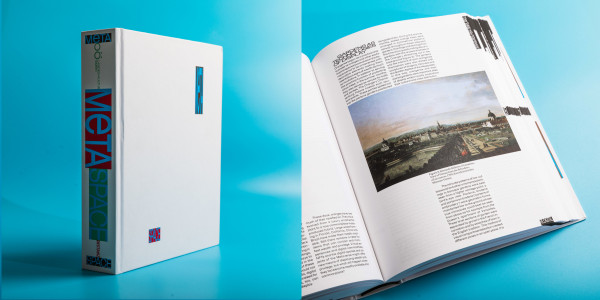Prof. Benjamin K. Hodges has published a chapter in Meta.space – Visions of Space from the Middle Ages to the Digital Age. This publication accompanies the exhibition “Meta.space – Visions of Space”, shown at the Francisco Carolinum in Linz, Austria from 01.09.22 to
08.01.23. Quoting the publisher, the collection brings together scholarship on “debated topics of space formation, space perception, and space use in the context of the metaverse debates.”
Prof. Hodges’ contribution, “Orangeries, heat sinks, and walled gardens: architectures of microclimates and the metaverse” draws parallels between the management of heat generated by computing and the history of garden design. From cloud computing to crypto-mining, large scale computing infrastructure requires the careful management of heat just as the maintenance of tropical species in colder Northern climates requires greenhouses and other such supporting architectures.
In his chapter, Hodges specifically traces the entrance of the orange into Europe. With its origins in South Asia, the orange was long valued in Northern Europe as a symbol of wealth and luxury that required purpose built spaces to sustain them. The orange no longer holds this cultural significance but this history of paired spatial design and rare fruit can be used to think about the design of virtual spaces and the emerging global infrastructure that supports them.


